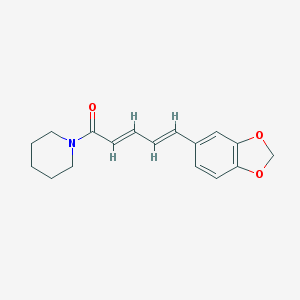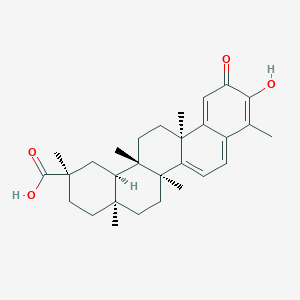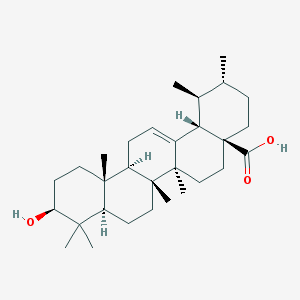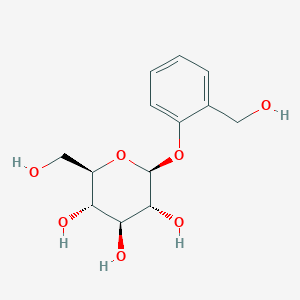Description
Piperine is a chemical that contributes to the pungency of black pepper (Piper nigrum). It is water soluble but extremely soluble in alcohol, chloroform, and ether. Piperine has been used in traditional healing for a long time. Its main business application is in modern herbal medicine. Piperine can be discovered. Piperine is mainly found near the cell membrane. Piperine, along with its isomer chavicine, is the alkaloid that gives black pepper and long pepper their pungency. It has also been used as an insecticide and in some types of traditional medicine.
Benefits of Piperine
- Bioavailability Enhancer: Piperine is well-known for its ability to increase the bioavailability of certain nutrients and drugs, meaning it helps the body absorb them more effectively.
- Anti-inflammatory Properties: Studies suggest that piperine may have anti-inflammatory effects, which can be beneficial in treating conditions like arthritis.
- Antioxidant Effects: Piperine exhibits antioxidant properties, helping to protect cells against oxidative stress and damage.
- Metabolic Benefits: It may aid in the metabolism of fats and help in managing weight.
- Neuroprotective Effects: There is some evidence suggesting that piperine could have protective effects on the brain and nervous system.
Applications and Main Usage
- Dietary Supplements: Piperine is commonly added to supplements, especially curcumin (turmeric) supplements, to enhance absorption.
- Food Industry: In the food industry, piperine is used as a flavoring agent due to its pungent taste.
- Pharmaceuticals: In pharmaceuticals, it’s explored for its role in enhancing drug efficacy and absorption.
- Research: It is used in scientific research to study its effects on health, drug metabolism, and disease treatment.
- Cosmetic Products: Piperine finds its way into some cosmetic products for its potential skin benefits.





